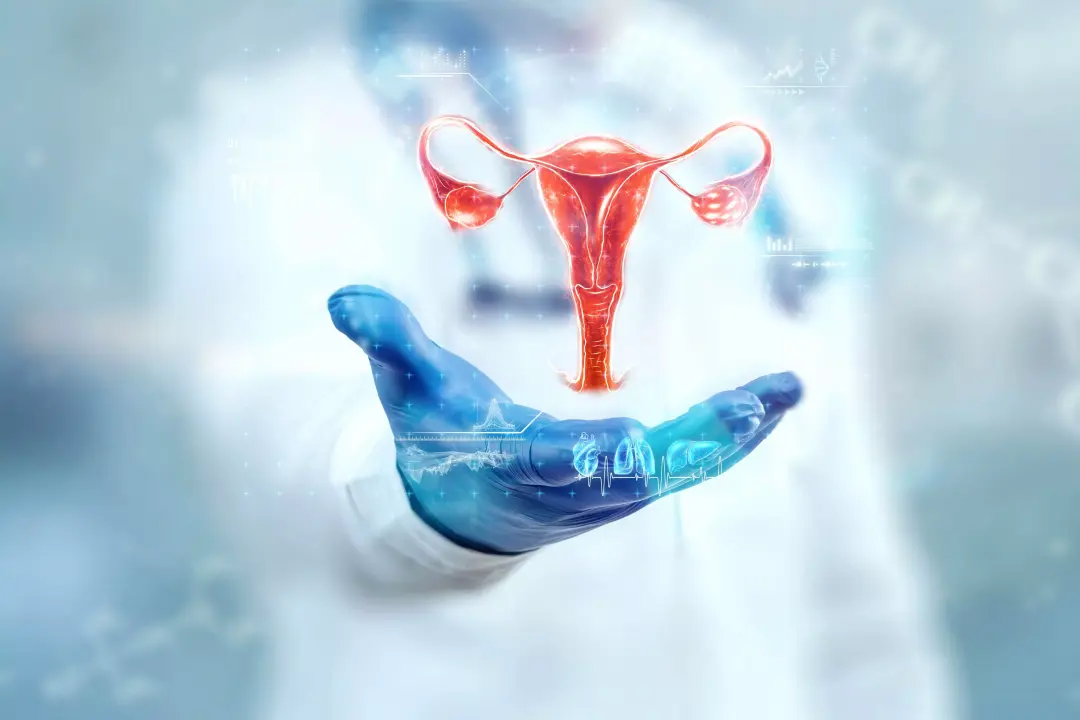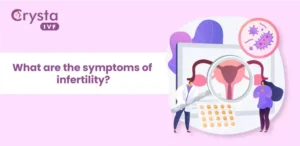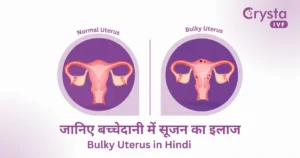Introduction-
Infertility has been one of the most common problems treated by gynecologists worldwide. Many of the couples are devoid of kids irrespective of several treatments.
But the causes of infertility have also been a research factor even after advancements in medical facilities.
Several health conditions affect the fertility rate among couples, like tubal blockage, endometriosis, uterine fibroids, etc.
Do you know how endometriosis affects fertility treatment in the greatest measure of these conditions? Is there any correlation between endometriosis and fertility treatment?
Let’s take a closer look at endometriosis and an appropriate fertility treatment before beginning a correlation between the two.
What is endometriosis?
Endometriosis is a condition in which the uterine lining, known as the endometrium, grows outside of the uterus. As a result, scar tissue forms that ultimately kills healthy tissue and leads to anatomical deformation.
Although, if endometriosis is left untreated, scar tissue can interfere with the natural function of the reproductive organs, making it difficult to conceive naturally.
If you’ve been diagnosed with the disease, don’t lose hope. Crysta IVF fertility centre in Pune can help you. Fertility experts at Crysta IVF will walk you through all treatment options in detail and guide you at every step.
Causes of endometriosis
Endometriosis is a multifactor disease caused by both genetic and environmental factors acting together.
The cause of endometriosis varies from woman to woman. Certain lifestyle factors may have a role in the development of endometriosis,
These include the following:
- Menarche (first menses) before 11 years
- Alterations in immune cells
- First pregnancy in the late 30s
- Heavy alcohol consumption
- Low body weight
Symptoms of endometriosis
One of the problems with endometriosis is that around 25 per cent of females with endometriosis have no symptoms, and they mostly remain undiagnosed.
Symptoms of endometriosis are not related to the extent of the lesion. Therefore, even when endometriosis is widespread, there may be no symptoms; conversely, there may be intense symptoms with minimal endometriosis.
The depth of penetration is more related to the symptoms.
Some common symptoms of endometriosis include:
- Excessive pain during or before menses
- Pain worsening with each menstrual cycle
- Back pain
- Abdominal pain
- Recurring periods
- Irregular bleeding
- Spotting
- Pain during sex
Diagnosis of endometriosis
Endometriosis can be detected during your visit to gynecologists.
If you have had infertility, excessive menstrual pain, pain during sexual intercourse, then there’s a chance of you suffering from endometriosis.
Therefore your gynecologist first recommends diagnostic tests like:
- Vaginal ultrasound
- Laparoscopy to rule out endometriosis and to manage the problem.
Endometriosis and fertility
It is not clear whether endometriosis causes infertility or infertility causes endometriosis. However, in a research study, 35–50 per cent of infertile women had endometriosis, and 30–50 per cent of women with endometriosis were infertile.
Although the correlation between them has not been established yet, the relationship between them has been a subject of debate for many years. But some factors contribute to infertility in endometriosis.
These factors include altered female reproductive anatomy, endocrine, and ovulatory abnormalities, altered hormonal functions, etc.
The female reproductive system, which includes the ovaries and fallopian tubes, is extremely delicate and vulnerable. If your endometriosis is severe enough to damage your tubes and ovaries, you will have a much harder time getting pregnant.
Also, endometriosis can cause inflammatory changes in your pelvis, which might affect your fertility. For the egg, sperm, and embryo, these alterations produce a hostile environment. This inflammation might harm the uterine lining in severe cases and hinder the embryo’s implantation.
Unfortunately, preventing endometriosis is not possible. But, early detection can help you avoid fertility prospects.
Treatment of endometriosis and infertility
To treat endometriosis, you will need lifelong management plans to manage pain in the abdomen and infertility. But, the plan of treatment is based on her health, age, and fertility.
In order to achieve adequate treatment for endometrium, many women require several types of treatments throughout their lifetimes.
At Crysta IVF centre in Pune, we can provide current treatments for endometriosis, including medical, surgical, or a combination of these approaches.
In order to treat endometriosis with infertility, at an IVF centre in Pune, a combination of surgical treatment followed by medical treatment and IVF is the first choice of treatment.
IVF is particularly appropriate for cases of infertility associated with endometriosis involving compromised tubal function, malefactor, and other treatment failures.
In particular, IVF is a powerful therapeutic tool. In this procedure, women receive fertility drugs that cause several eggs to grow in the ovaries. The eggs are ready to be taken from the ovaries when the follicles reach a particular size. It is done under the influence of a mild sedative (anaesthesia). Then, the mature eggs are entirely extracted with an ultrasound-guided needle inserted through the vaginal wall into the ovaries. It takes roughly 10 minutes to complete this procedure.
In the fertility laboratory, eggs and sperm are fertilized. The majority of them will fertilize to develop into embryos. Under the guidance of our fertility experts, the fertility centre in Pune guides you in every aspect of your fertility journey.
Therefore, if you have endometriosis and wish to establish a family, then IVF is a good choice. Contact Crysta IVF fertility centre in Pune if you have any questions concerning endometriosis and IVF in general. We will address your concerns and discuss treatment options.
In a nutshell, endometriosis has a profound impact on quality of life and finding a treatment that can improve fertility remains a top priority and a challenge.
In vitro fertilization (IVF) works effectively for women with endometriosis. However, you’ll require extra care once you begin IVF.
Your fertility medicines need to be carefully monitored because they can temporarily aggravate endometriosis symptoms. Early identification of endometriosis and early access to IVF can help in increasing the chances of getting pregnant. Therefore, it’s crucial to keep a close eye on the symptoms of endometriosis in women.




